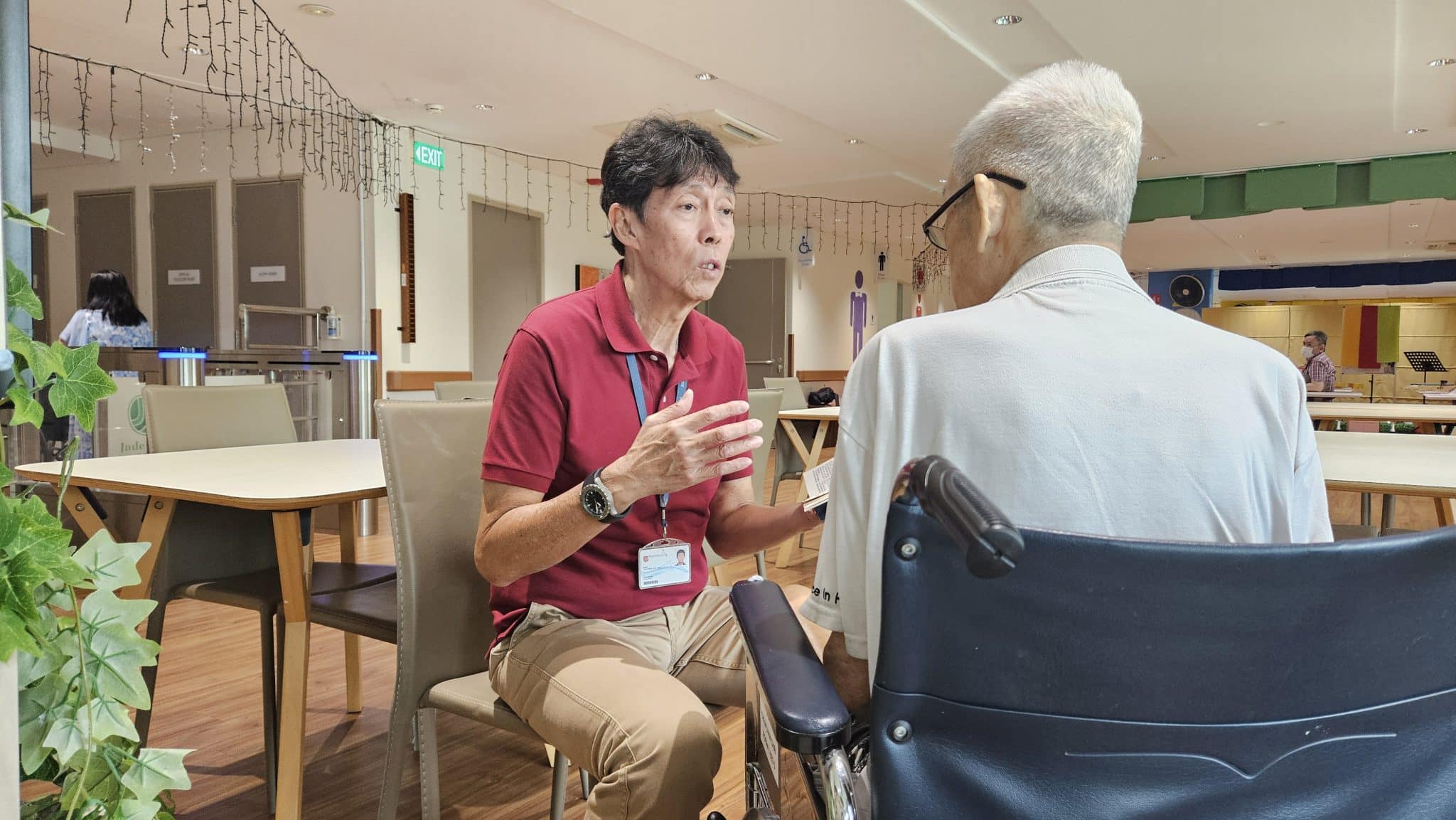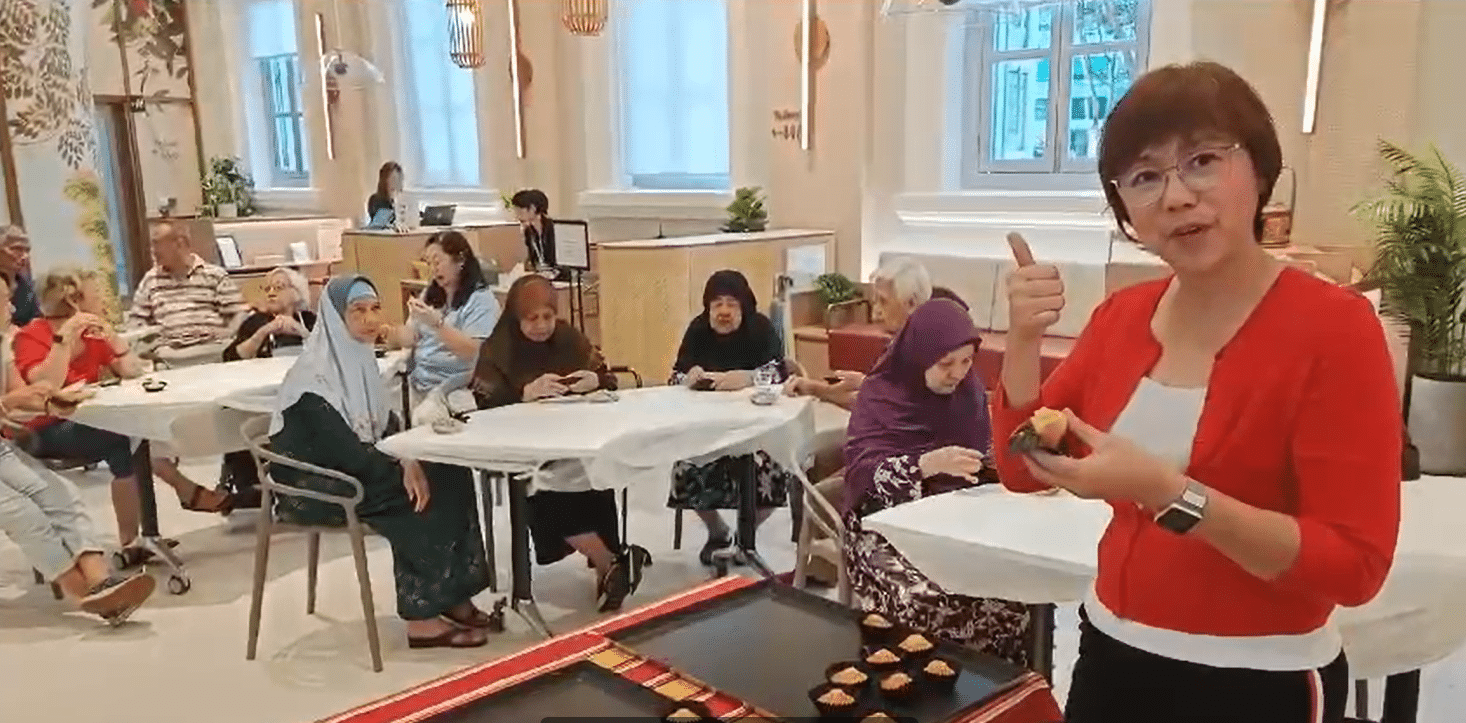“Dementia is a physiological condition, but the spirit lives”: These dementia ministries want to remind the elderly they are God’s beloved
by Gracia Lee // September 18, 2023, 3:53 pm
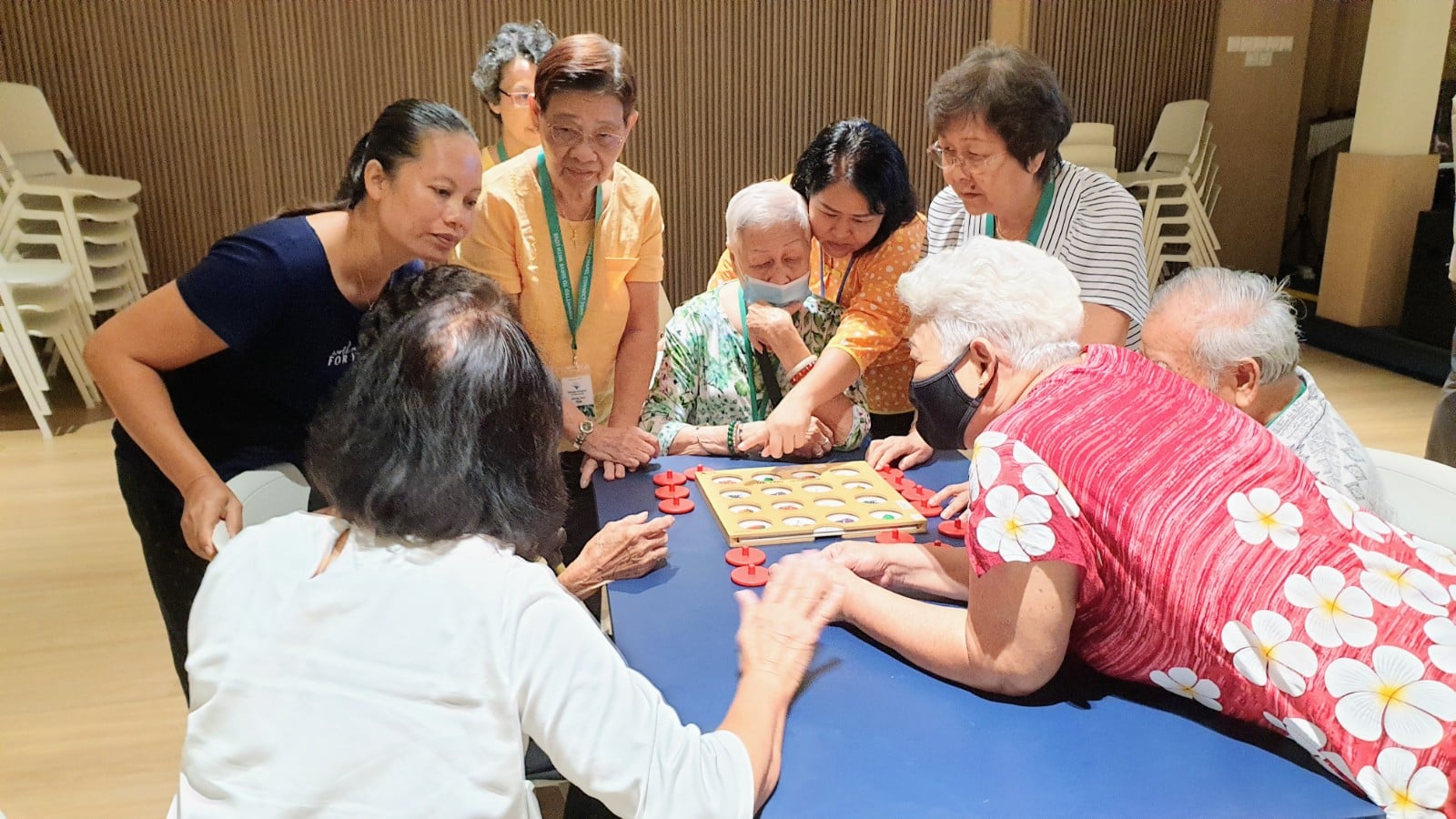
“The Church is called to minister to the vulnerable, and persons living with dementia are among the most vulnerable individuals in Singapore today. We would be ignoring God’s call if we were to neglect them,” said Leow Wen Pin, founder of Koinonia Inclusion Network. Photo courtesy of Koh Weng Kin.
After Koh Weng Kin’s elderly mother was diagnosed with dementia, she gradually began to lose her grasp of Mandarin, a language she had learnt and understood all her life.
A faithful worshipper at the Chinese service in her church, she started to lose focus during the sermons and would often ask her son questions loudly throughout the service.
Seeing that she was becoming increasingly frustrated, and at a loss over how to deal with her distracting behaviour, Weng Kin decided to stop taking her to church.
“I felt sad because I would have liked her to attend service every Sunday, but back then – this was about 10 years ago – I wasn’t too aware about her condition and what I could do about it,” said the 62-year-old.
Spirituality is not separate from dementia
As an elder in charge of the Chinese and Hokkien services at Salem Chapel today, Weng Kin has observed a growing number of people in his congregations suffering from dementia and dropping out of church like his mother did.
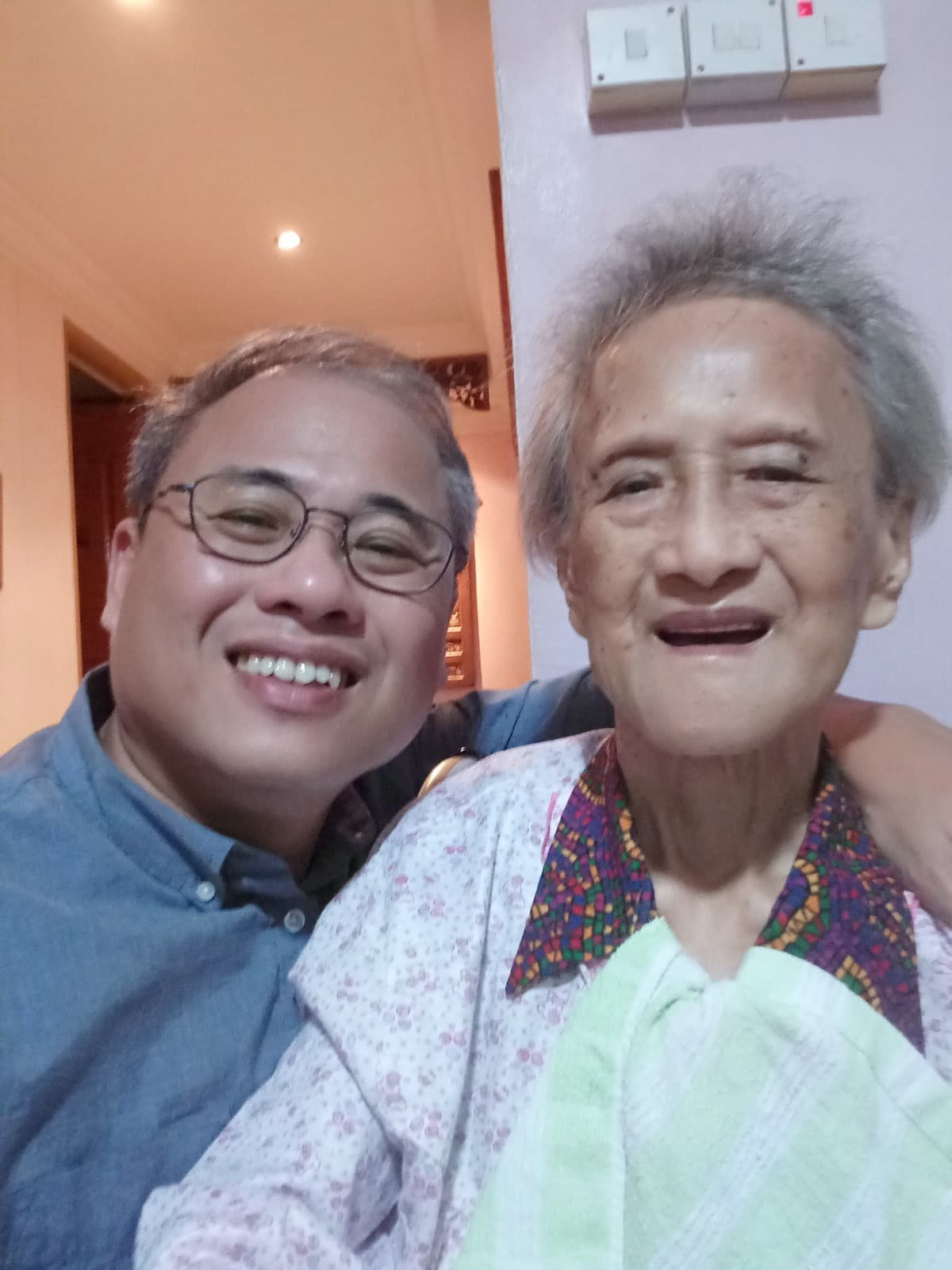
Weng Kin with his late mother, Madam How Mun Kuan, who passed away in 2018. Photo courtesy of Koh Weng Kin.
This time, he decided to do something about it.
In 2019, he was part of a team at his church that started D’Fellowship, a ministry to people with dementia. It is conducted in Mandarin and Hokkien.
“We want them to continue to fellowship with one another and also continue to remember the Lord. We really hope that, though they may forget everything else, they will still keep their faith,” said Weng Kin.
“We hope they can maintain their worship and encounter with the Lord.”
Salem Chapel is one of at least two churches in Singapore that has a dementia ministry. The other is Barker Road Methodist Church (BRMC), which started their ministry in the same year after noticing that many seniors in their membership roll had stopped attending church due to dementia.
“They don’t want to be seen to have this condition. They feel ashamed and embarrassed, and so they drop out willingly and they hide,” said Chang Chong Tian, a pastoral staff member at BRMC in charge of the dementia ministry, Shalom Fellowship.
“Many of them were even our leaders. They have done very much for the church and they are precious to the community and to all of us, so we wanted to continue to engage them,” he added.
In Singapore, about one in 10 people aged 60 and above suffers from dementia. As our population ages rapidly, the number of persons living with dementia is set to continue rising. According to HealthHub, there will be 152,000 people living with dementia by 2030.
“The Church is called to minister to the vulnerable, and persons living with dementia are among the most vulnerable individuals in Singapore today. We would be ignoring God’s call if we were to neglect them,” said Leow Wen Pin, founder of Koinonia Inclusion Network, which advocates for disability-inclusive churches.
There is scientific evidence to show that the healthy integration of persons living with dementia into community can slow down the progression of dementia, and this is where the church can come in.
“Churches have a role to play as a healing community, since spirituality is not separate from dementia, but an essential part of addressing it.”
Pointing to Singapore’s ageing population, Wen Pin added: “We can think about it as preparing the church for ourselves, since statistically many of us will have dementia.”
Calling faith to mind
Held once a month, the programme at both churches’ dementia ministries are similar: After a time of introduction – reminding each other of their names, as well as the day and date – they sing a few familiar worship songs and listen to a short exhortation highlighting a simple biblical truth.
Then they go into a time of light exercise, followed by some handicraft and games that help them with their memory and hand-eye coordination. The sessions, which last for about two hours and are attended by between eight and 15 seniors, then end with a time of prayer.
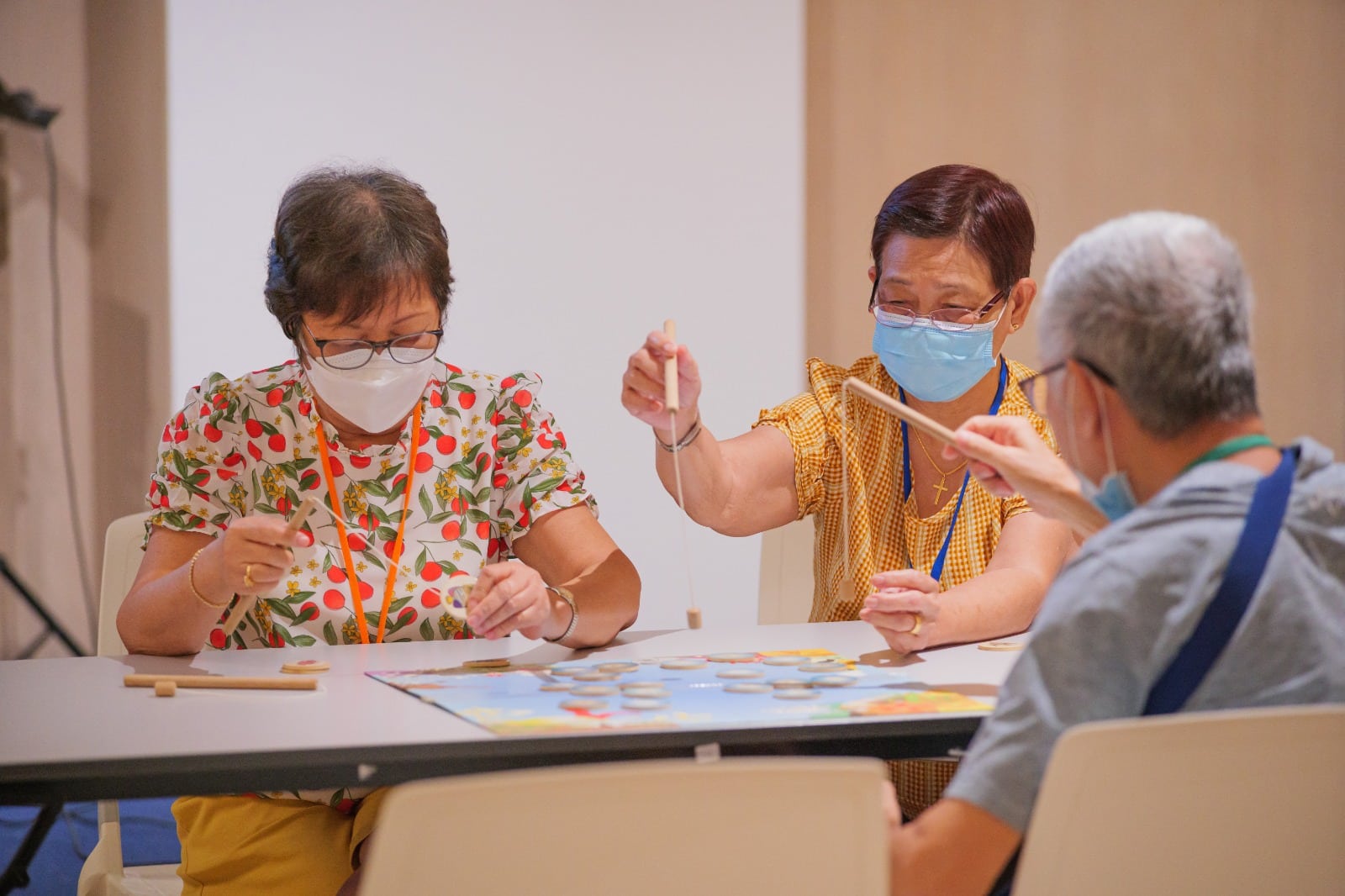
At Salem Chapel’s D’Fellowship, seniors get the chance to play games to improve their memory and hand-eye coordination. Photo courtesy of Koh Weng Kin.
“We want them to continue their worship routine in a shorter form that’s more suitable for them. We hope they can maintain their worship and encounter with the Lord in a corporate manner at least once a month,” said Weng Kin.
At BRMC’s Shalom Fellowship, which is conducted in English and Mandarin, faith elements are intentionally incorporated into each segment. For example, while doing exercises, they encourage the elderly to “raise your hands to praise the Lord” or “stretch out your arms to reach out to God”.
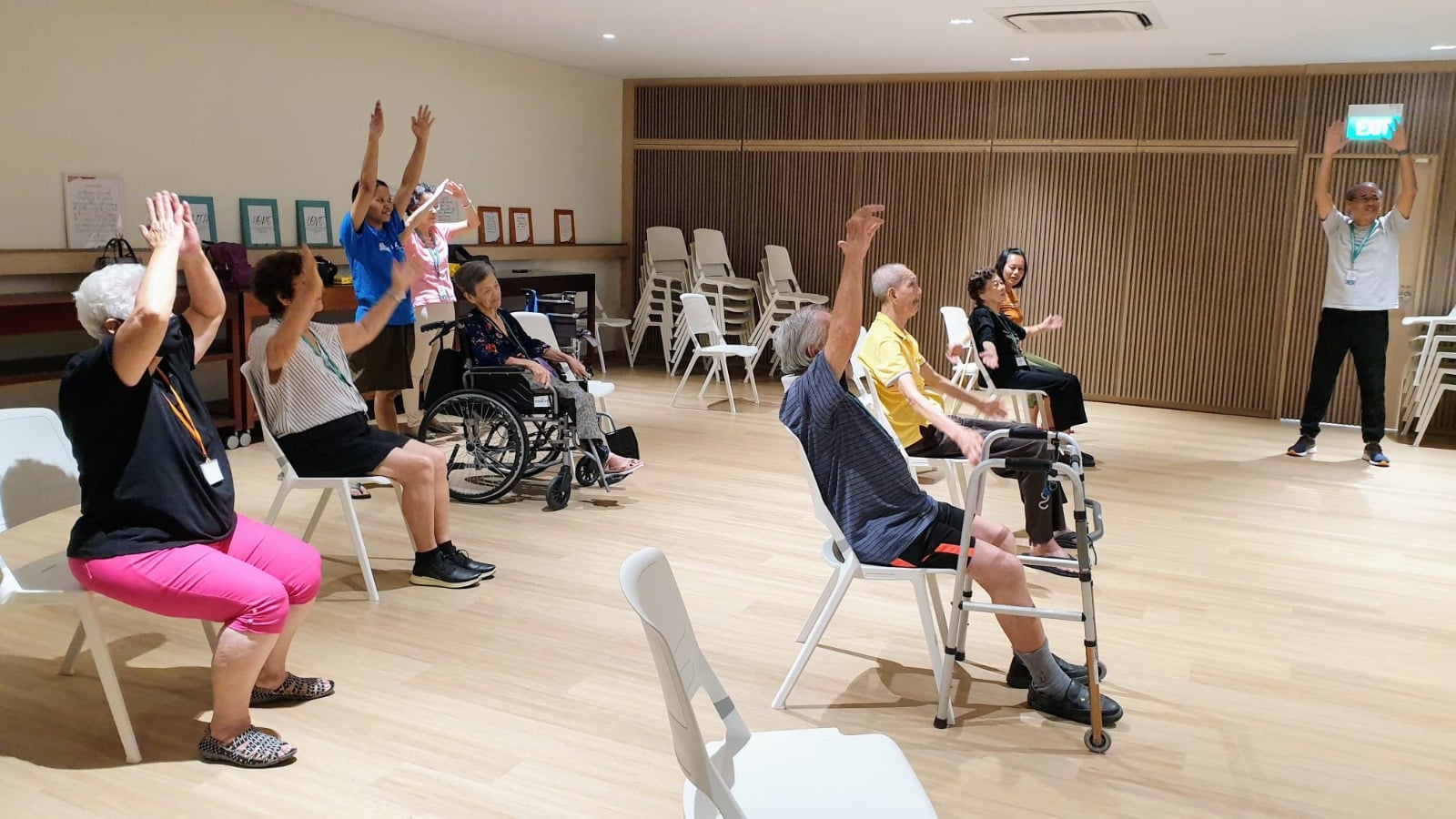
Attendees at D’Fellowship raising their hands to praise the Lord. Photo courtesy of Koh Weng Kin.
They are also mindful to always include a pulpit, as well as a visible symbol of the cross, at the front of the hall so that the attendees are reminded that they are at church.
“We were singing Amazing Grace and one woman who was usually quiet suddenly blurted out, ‘Oh, I’m so blessed!'”
“Dementia is a physiological condition, but the spirit lives. We want them to recall moments of worship, moments of faith. We want to call it out, because once it’s called to their mind, the faith that is embedded in them rises,” said Chong Tian.
Running the ministries has its challenges, from coping with a lack of volunteers to facing anti-social and inappropriate behaviour from some seniors. But there have been rewards too.
“We were singing Amazing Grace and one woman who was usually quiet suddenly blurted out, ‘Oh, I’m so blessed!’ We almost fell off our chairs. These are moments that are really very encouraging. We have touched something,” said Chong Tian.
Weng Kin, too, has observed similar positive responses.
He said: “The seniors really enjoy themselves. We can see it from their expression and body language. During the singing, you can see that they are very energised and animated. Once we played a song and a gentleman started dancing!”
Caring for the carers
Apart from reaching out to members with dementia, the ministries also hope to encourage their caregivers, who are often overlooked.
“They are the ones who are most in need of help. We want those families who have loved ones afflicted with dementia to know that God continues to love them, and the person that they are caring for is not a non-person and can continue to flourish,” said Chong Tian.
He added that ministering to caregivers is also an important means of caring for people living with dementia, as a healthy and supported caregiver is in a better place to extend love and care compared to one who is tired, discouraged and burnt out.
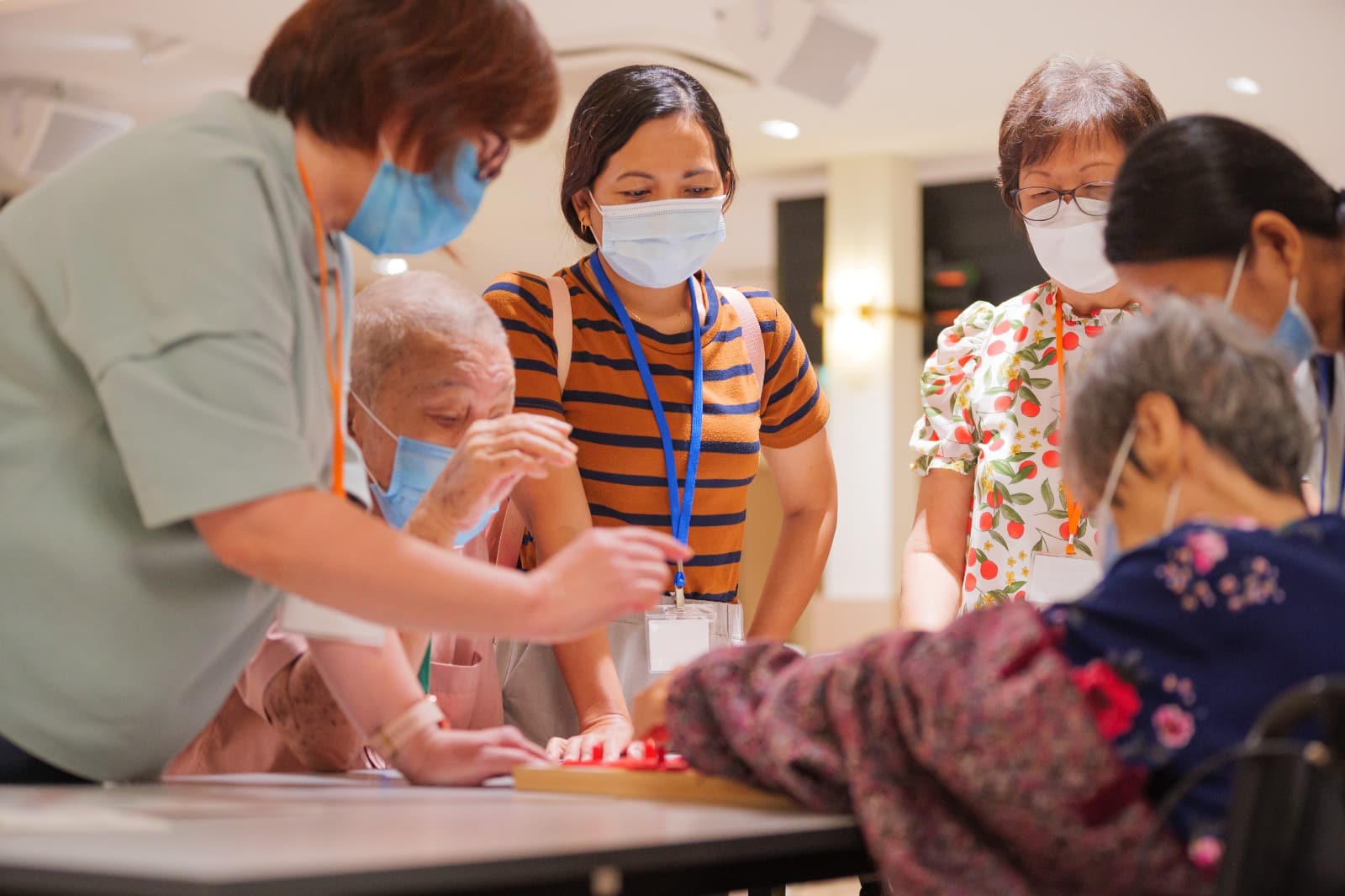
The dementia ministry reaches out to not just people living with dementia but their caregivers too. Photo courtesy of Koh Weng Kin.
Caroline Liew, a member of BRMC who cared for her late father with Alzheimer’s for 15 years, knows this well.
“Though he couldn’t understand the sermon anymore, he could still enjoy the worship. He retained that part of his personhood.”
“Many people don’t know that the journey for the caregiver is even more difficult. It’s sometimes so tough because you may not have support, not just financial support but the mental and emotional support,” she said.
Despite the challenges, she said it was her joy to care for her father. She persisted in taking him to church, even though her church had not yet started the dementia ministry at the time.
“Even though my dad couldn’t understand the sermon anymore, he could still enjoy the worship. He retained that part of his personhood,” said Caroline, who is in her 60s.
After the worship segment was over at the main service, she would take him out of the service to the canteen, where Chong Tian would keep him company. Another sister-in-Christ would also sing Cantonese opera songs with her father, which he loved.
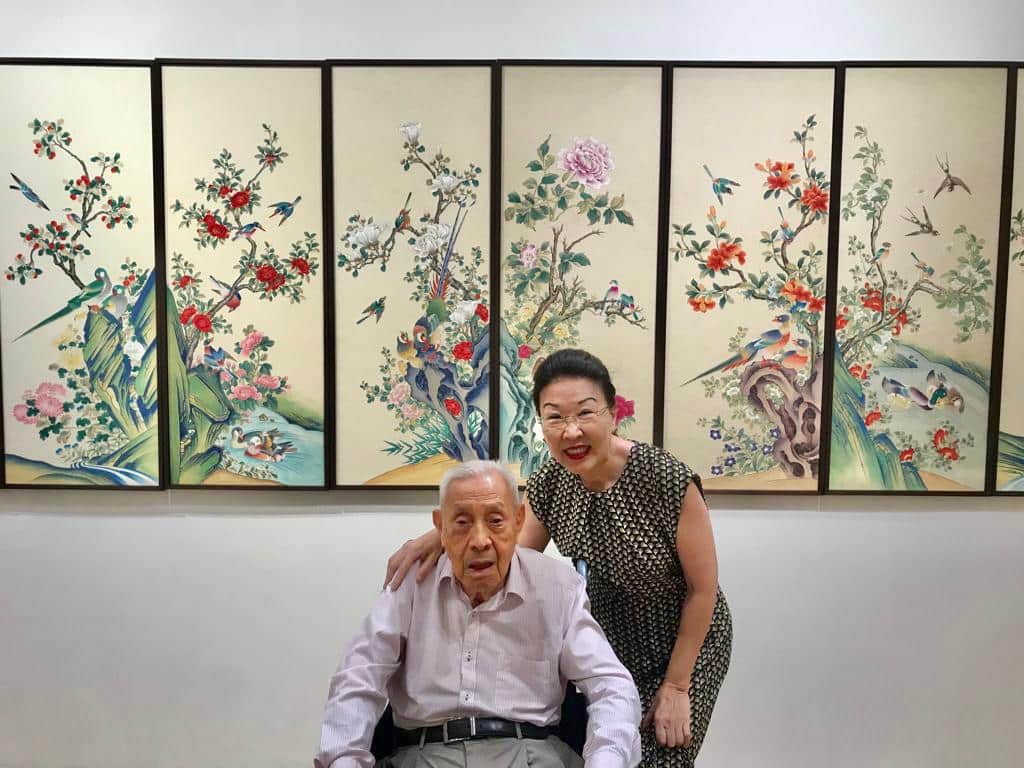
Caroline with her late father, Liew Ng Sang, who had dementia for 15 years and passed away recently. Photo courtesy of Caroline Liew.
When she found out that her church was starting a dementia ministry, she signed him up immediately and saw how he flourished.
“They sang together, made silly jokes together. The church really surrounded him with love.”
“My father made many friends. They sang together, made silly jokes together. The church really surrounded him with love,” she said.
Seeing their love for him made her caregiving journey less lonely. “I had a safe space,” said Caroline, who now volunteers with Shalom Fellowship and also visits the homebound.
This is exactly what the dementia ministries hope to offer to both people with dementia and their caregivers.
Said Chong Tian: “They are God’s people, they are God’s beloved, just like any one of us. We pray the Lord can use us to be ministers of his presence, ministers of his kindness, but most of all, ministers of his shalom.”
Dementia ministries for your loved ones
D’Fellowship by Salem Chapel
- Where: 1 Thomson Hills Drive, Singapore 574746
- When: Every last Thursday of the month (except December)
- Time: 10am to 12noon
- The programme is conducted in Mandarin and Hokkien.
- If you’re interested to attend, do drop Koh Weng Kin an email at [email protected].
Shalom Fellowship by Barker Road Methodist Church
- Where: 48 Barker Road, Singapore 309917
- When: Every third Saturday of the month
- Time: 1.45pm to 3.45pm
- The programme is conducted in English and Mandarin.
- If you’re interested to attend, contact Chang Chong Tian or Damien Wong at 6256-4298.
RELATED STORIES:
God never forgets: Four ways to remind a person with dementia of their Creator
“God is with us, even as I watch my wife with dementia slip away”
We are an independent, non-profit organisation that relies on the generosity of our readers, such as yourself, to continue serving the kingdom. Every dollar donated goes directly back into our editorial coverage.
Would you consider partnering with us in our kingdom work by supporting us financially, either as a one-off donation, or a recurring pledge?
Support Salt&Light
